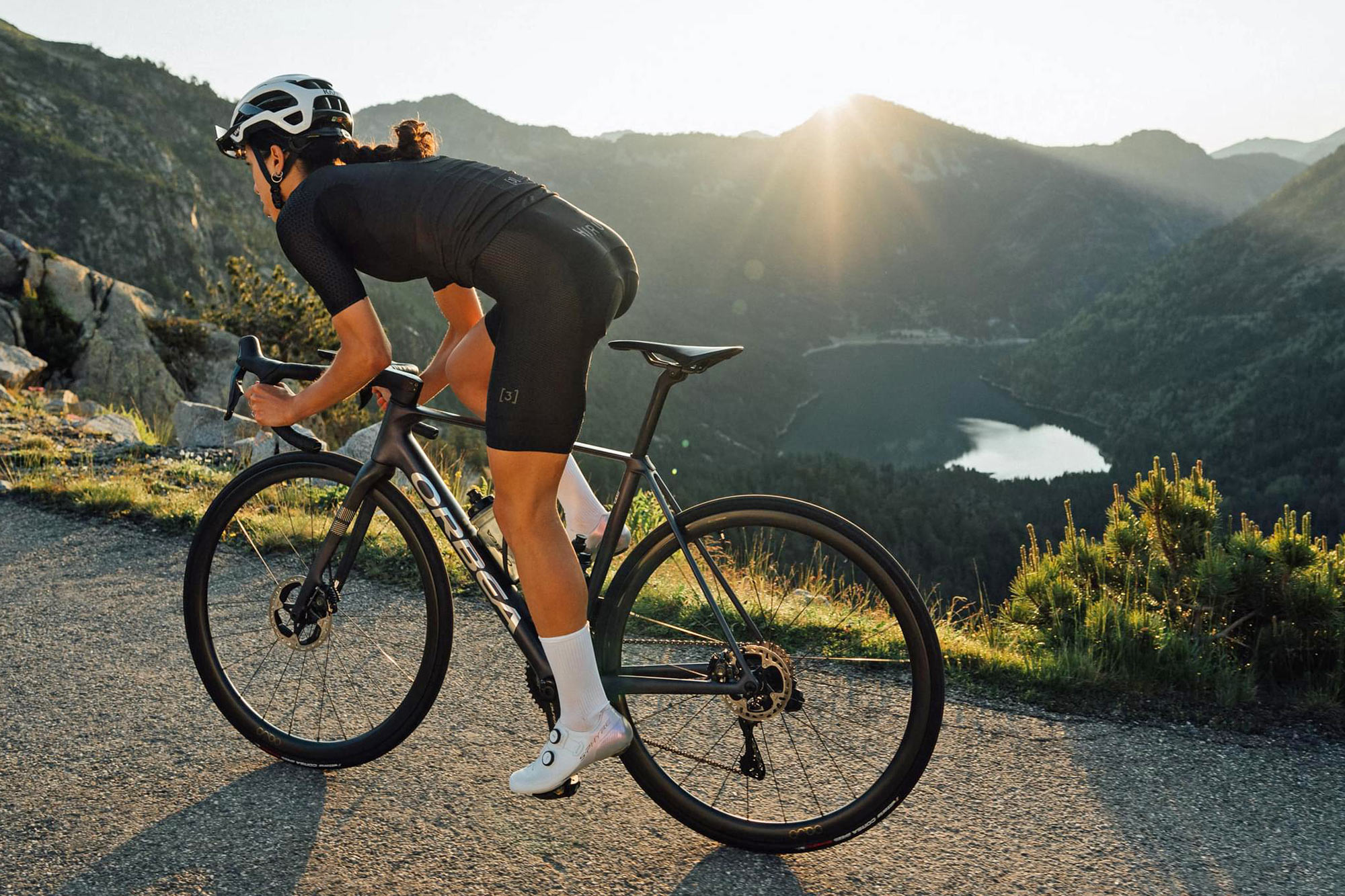Orbea goes all-in on light weight for more climbing speed in the latest 7th iteration of their top carbon Orca road racing bike. If you want an aerodynamic road bike for the extra speed on the flats, stick with the Orca Aero. But if you want to fly up the steep climbs – like those surrounding Orbea’s Basque HQ – it’s hard to argue with that magical feeling of stomping the pedals on a 6.7kg road bike!
Orbea Orca lightweight carbon climbers’ road bike from 680g
Accepting that modern road bikes have essentially fallen into 3 camps – light, aero, or a combination of the two – Orbea crunched the watt-saving numbers to see when and how to prioritize weight savings vs. aerodynamics. But with the Orca Aero an already quicker option for fast flat & rolling racing – at 30kmph the super-aero bike saves 12W, at 40 kmph 15W & at 50 kmph around 28W – they decided to let the Orca refocus as a pure climber. “Reducing weight by 500g on a gradient of 5% saves around 3W. If you increase the gradient to 10% the savings increase to around 6W.“
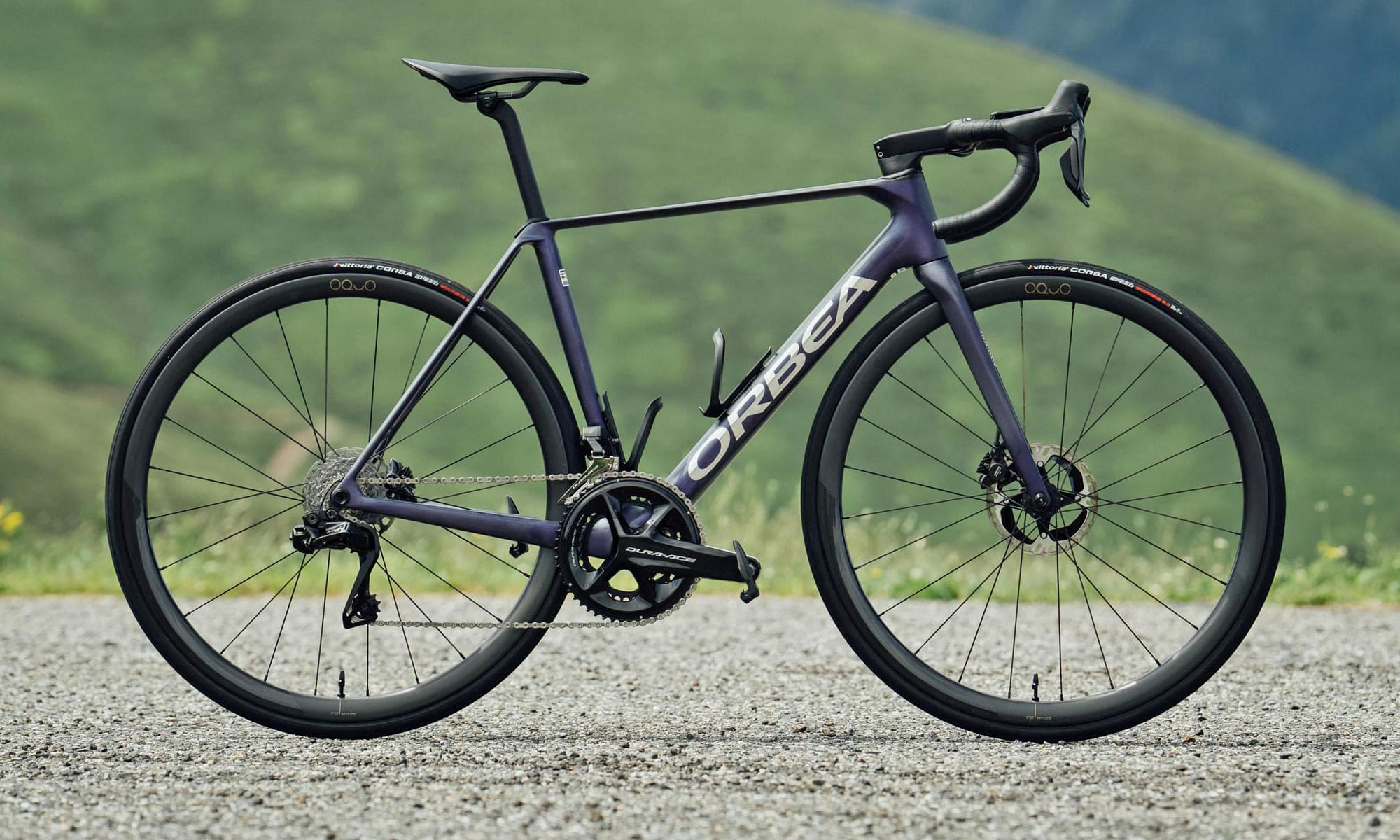
So the new flagship Orca aims to deliver the “best climbing performance possible: instant acceleration, agile handling, vibration damping, and excellent power transfer.”
How light is it, and how did it get that light?
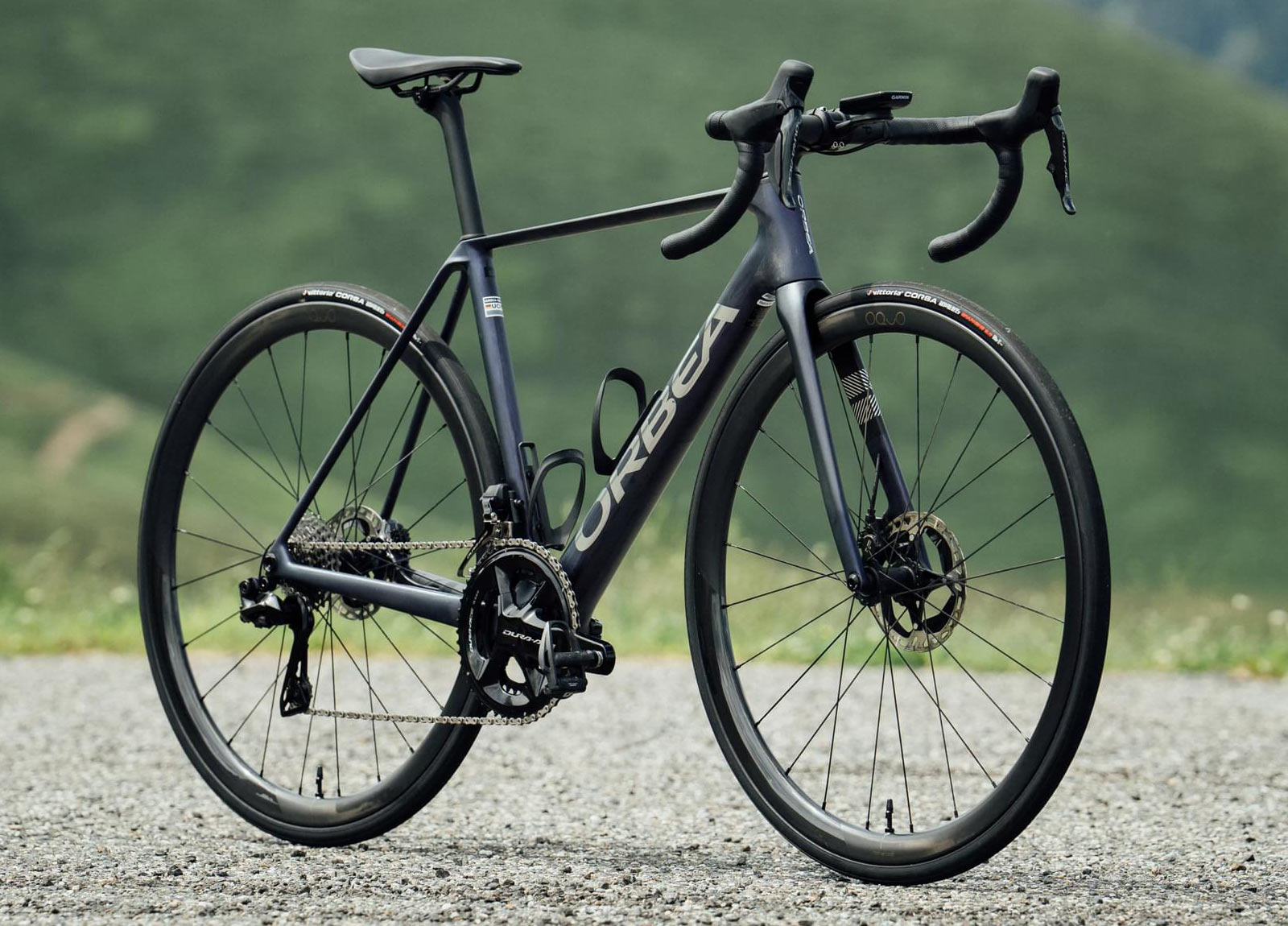
Officially, the top-tier Orbea Orca OMX carbon frame weighs just 750g in the medium 53cm, plus 360g for the new fork. Across the wide size range, that seems to be 680g for the 47cm frame, up to ~850g for the biggest 60cm frame. The Orca was already built with Orbea’s most premium hi-mod OMX carbon fibers, so reducing weight meant they actually needed to reduce material.
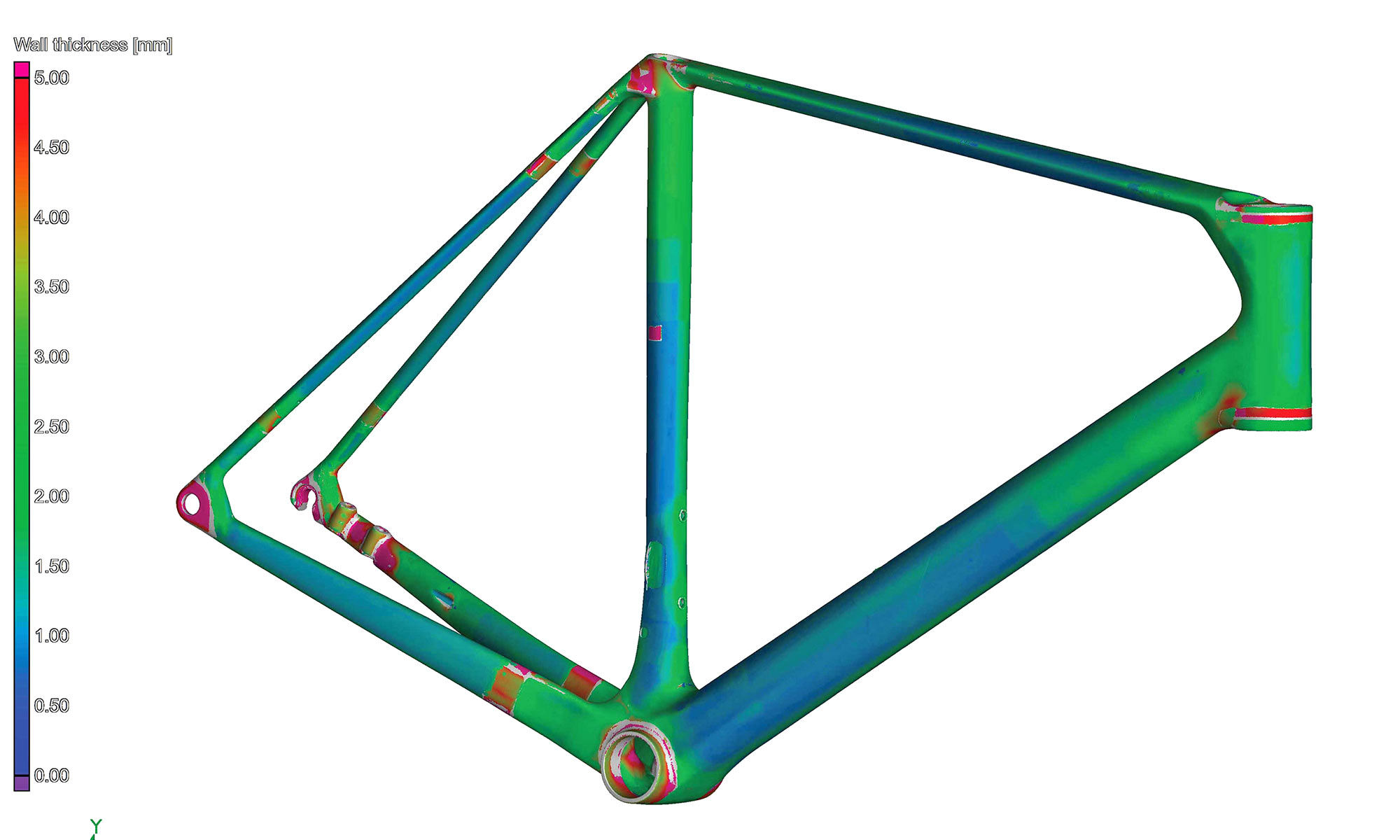
They got that light first by sticking with more structurally-efficient & stiffer round tube shapes and only incorporating aero features that didn’t add weight. Removing unnecessary edges eliminated extra resin & non-structural material, while utilizing more complex carbon pieces in the lay-up reduced the need for excess material overlap – the OMX frame uses 90 fewer pieces of carbon than the OMR bike. Then, lighter hardware (just 40g of bolts & bobbles), lighter paint at just 25g, topped off with a lighter 15g clearcoat finish.
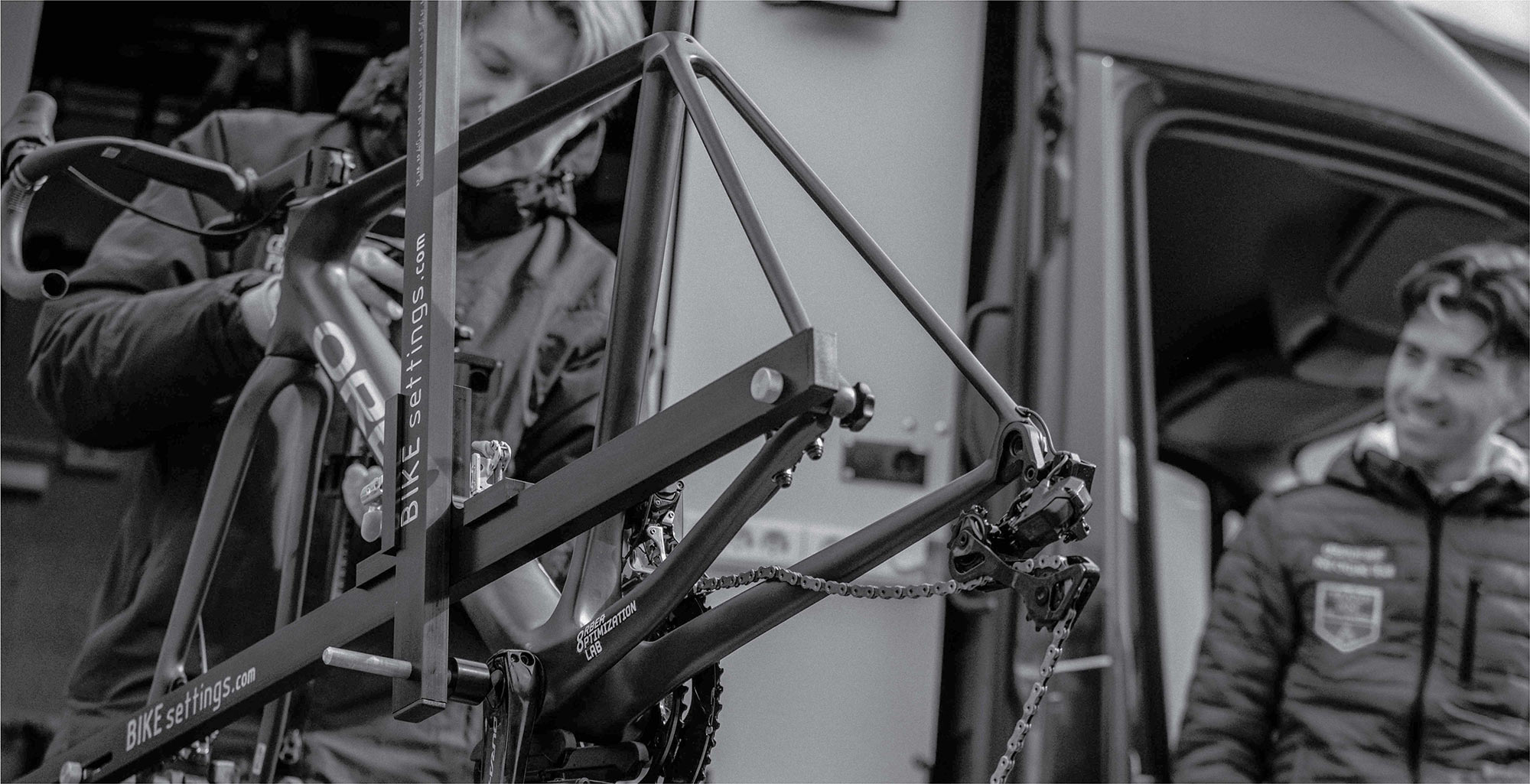
Even the second-tier OMR frame which shares the same outward shape is pretty light, but at 1030g with a 410g fork you’ll save quite a lot in your budget that might make it easier to save that 330g back in components.
What else is new?
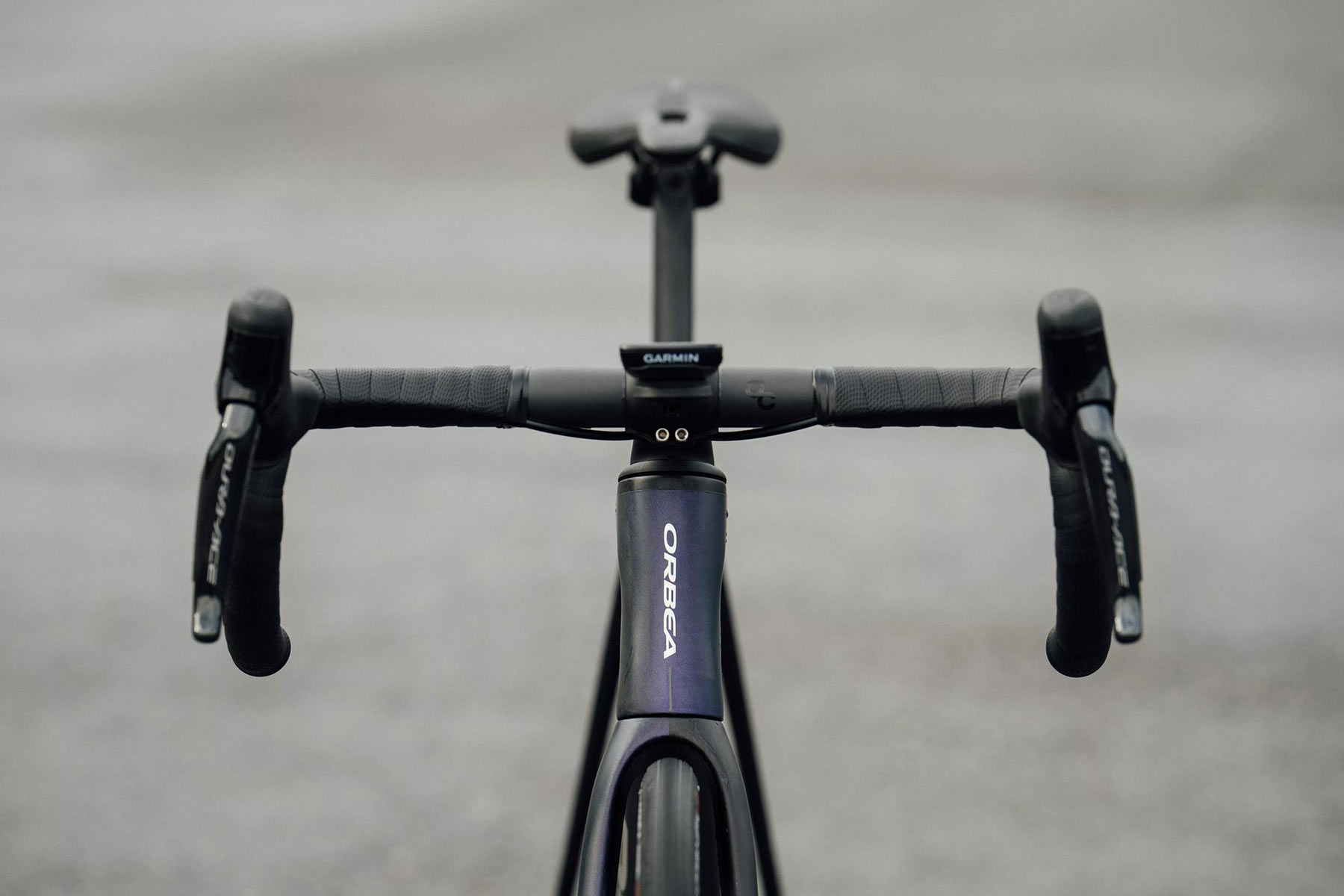
There are still a few aero improvements that didn’t compromise weight. Switching to an ICR fully internal cable routing system gets the cables out of the wind, while retaining adjustability with a conventional separate bar & stem solution that let Orbea spec light, adjustable cockpit components from their sister component company OC.

The new integrated wedge-style seatpost clamp at the top of the seatstays is also a more aero solution.
Tweaked geometry
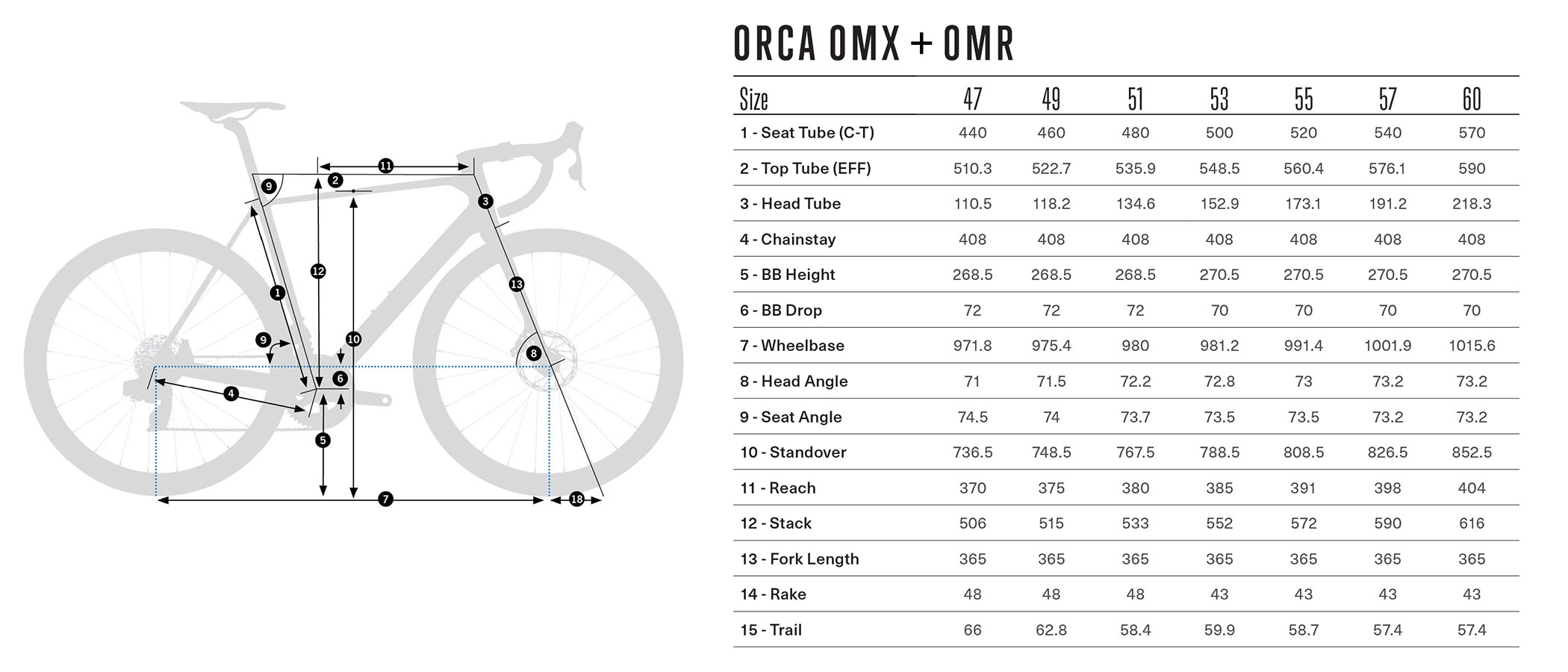
Geometry also gets some slight tweaks, while retaining most of its race-proven numbers. Across 7 sizes (47-60cm), pretty much all that has changed are shorter chainstays for improved acceleration, and overall shorter wheelbases for more responsive handling. At the same time, the Orca now has clearance for up to 32mm tires to get all the modern benefits of improved grip, control, rider comfort, and even lower rolling resistance.
Orbea Orca v7 – Pricing, options & availability
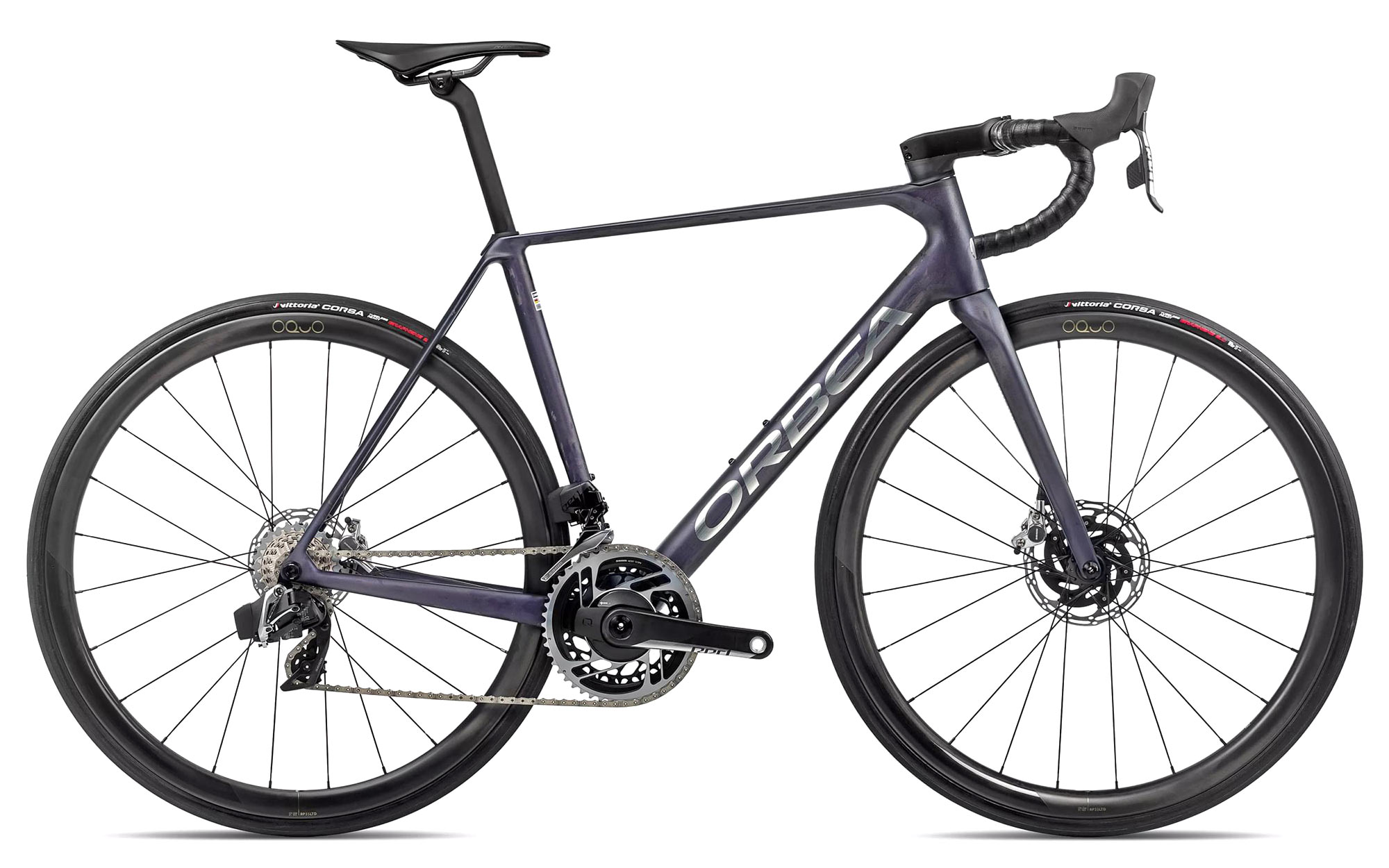
The 7th generation of the Orbea Orca is available in 13 models, almost all of which can be personalized for fit, finish & aero accessories via the Orbea MyO program. The top & lightest OMX bikes are offered in 3 stock colors, while the slight heavier OMR framesets get two colors. Orbea claims complete bike weights from 6.7-7.8kg across the entire range, saying they are the lightest in the market at each price point.
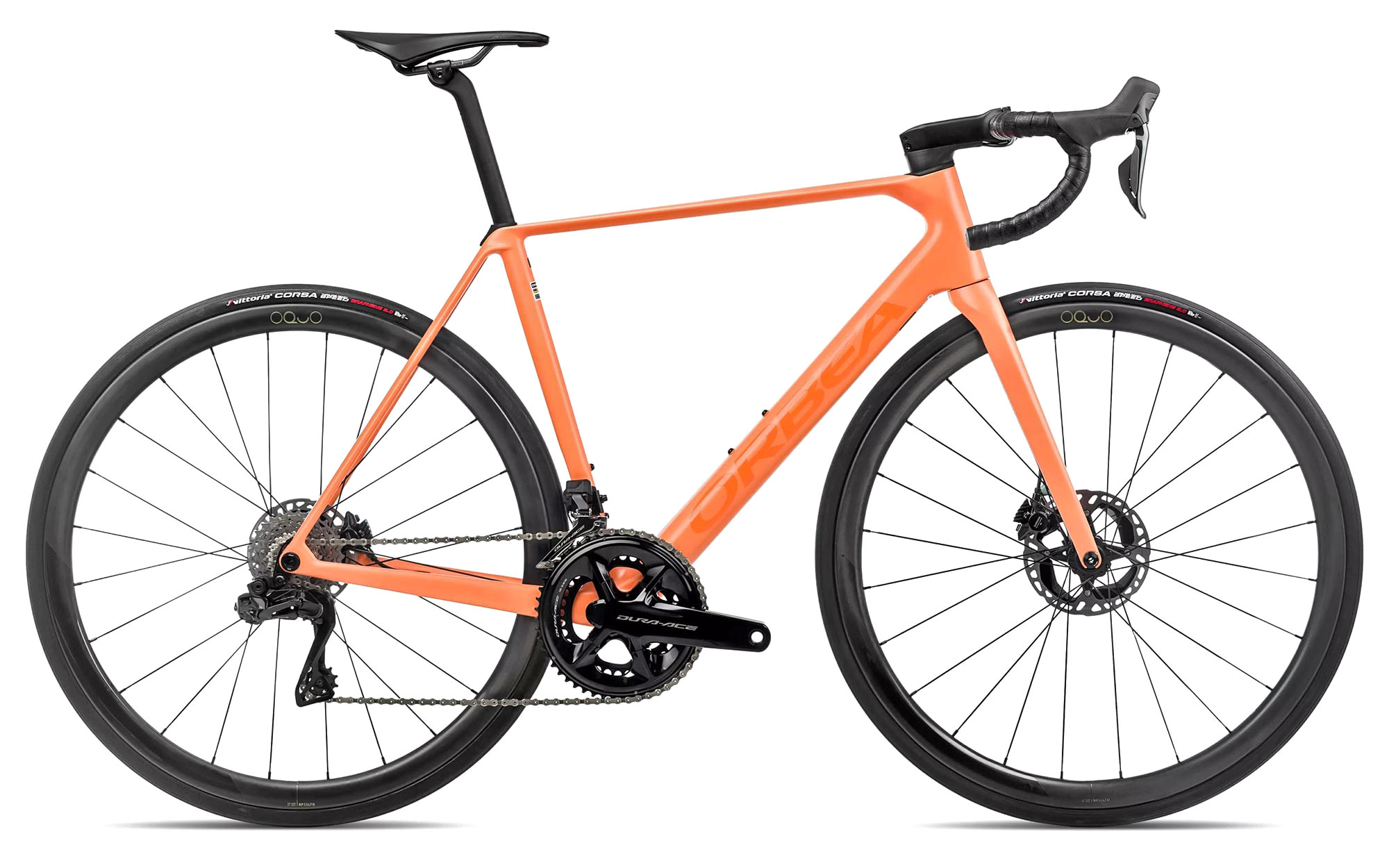
Top-tier OMX carbon bikes start at $6000 / 5800€ for the Orca M30iLTD PWR with 105 Di2, an undefined powermeter & Oquo RP45 LTD carbon wheels, and climb to $11,600 / 11,000€ for the top Orbea Orca OMX M11e LTD PWR build with Red eTap AXS with a power meter crank & Oquo RP45 LTD carbon wheels.
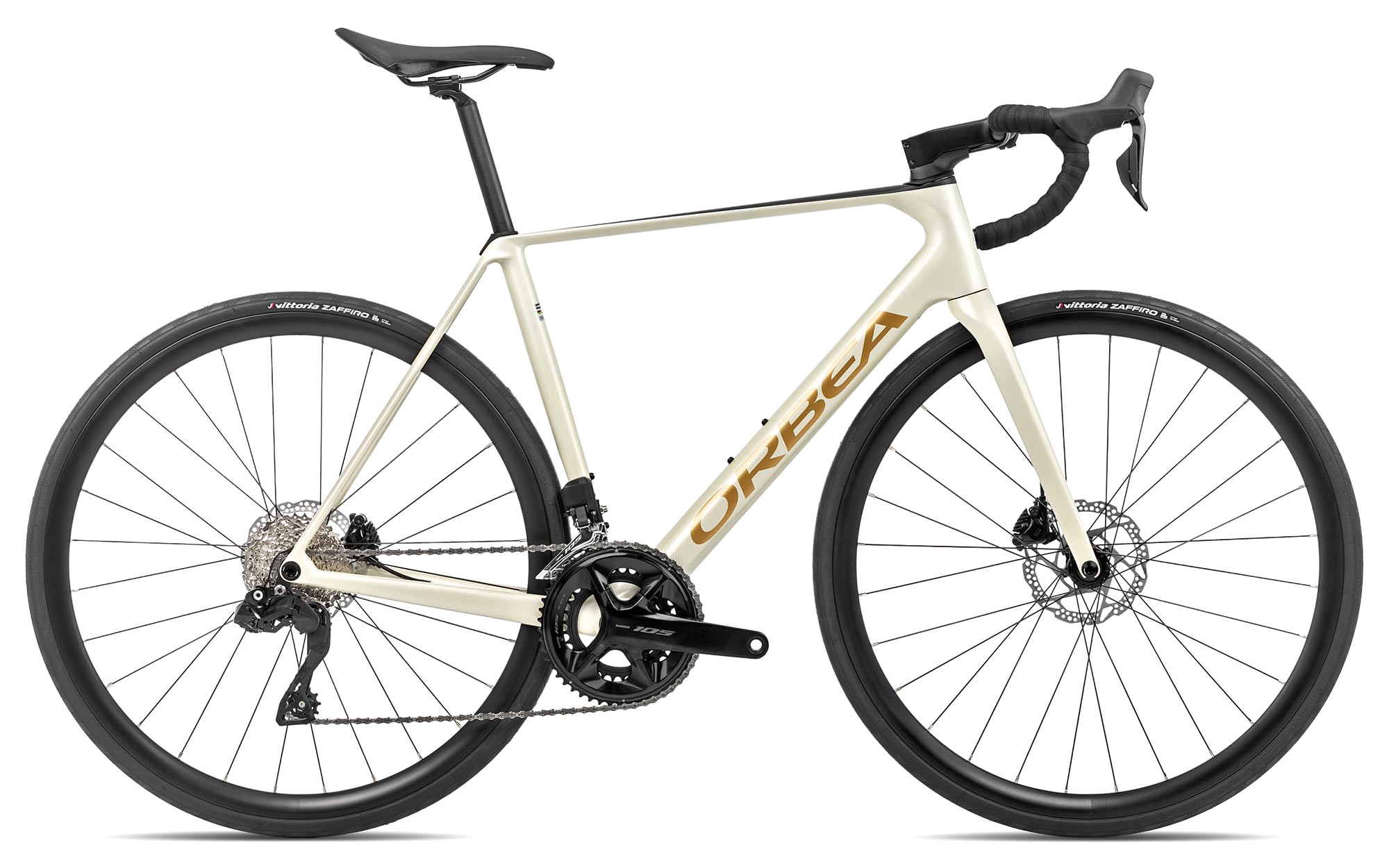
OMR bike pricing starts at $3600 / 3400€ for the Orca OMR M30i with 105 Di2 & alloy wheels, and climbs to $6900 / 6600€ for the Orca OMX M21e Team PWR build with Force AXS eTap with a powermeter crank & Oquo RP35 Team carbon wheels. Interestingly, a cheaper $3000 / 2500€ Orca M30 without the i for electronic shifting was also mentioned in Orbea’s listing, but with no further build spec details. Hmm.
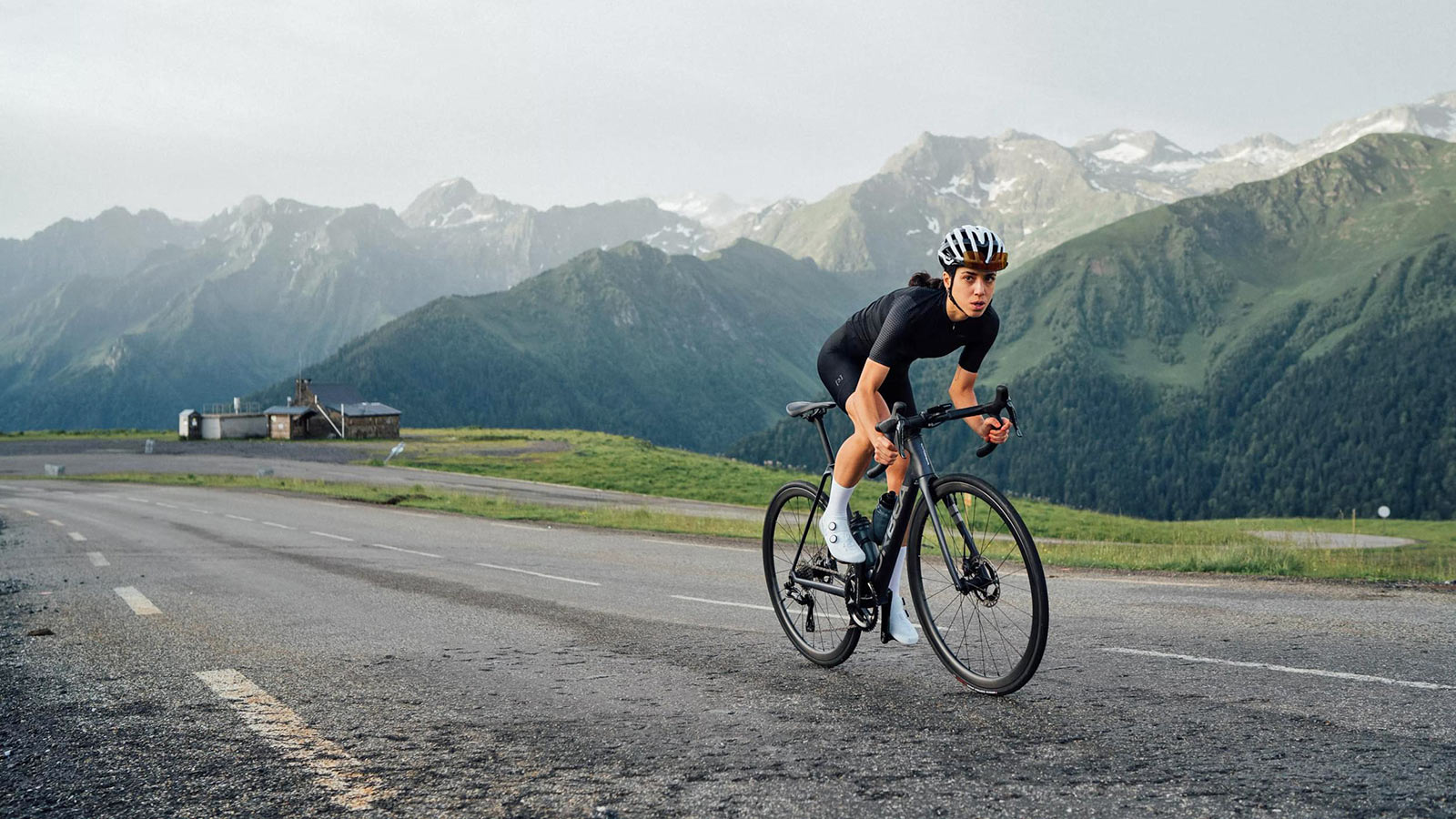
The new Orca is available now from your local Orbea dealer, and will make its racing debut this weekend with the women’s WNT Ceratizit team at the Tour de France Femme from July 23rd.
